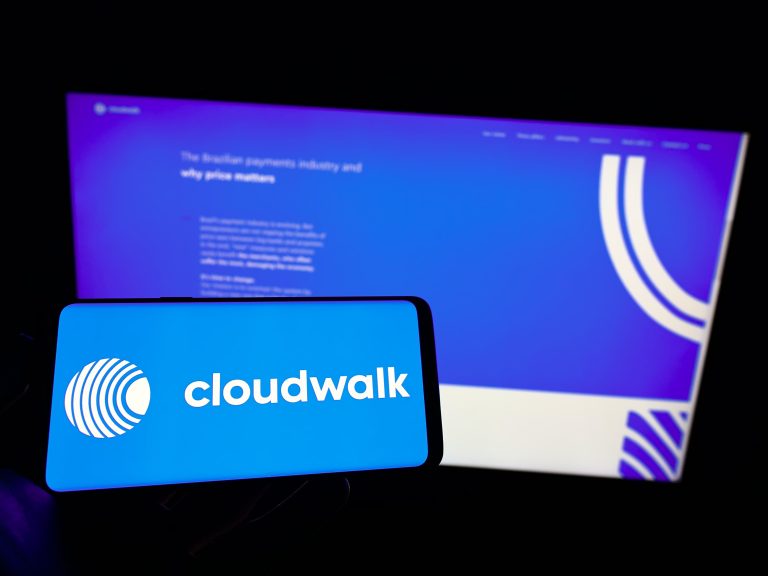CloudWalk On Meeting Latin America’s Growing Demand For Digital Payments

Brazil’s bold steps toward digital adoption and the launch of instant payments network Pix are slowly chipping away at cash. It’s why Luis Silva, CEO of payment network provider CloudWalk, tells PYMNTS he and others have high hopes for the burgeoning digital payments market in Latin America.
 Brazil is becoming a leader in digital payments adoption in Latin America, and consumers in the country have high expectations when it comes to these payments. Brazilian small to mid-sized businesses (SMBs) are poorly served by legacy banks, leaving room for alternative payment options to fill the void, according to Luis Silva, founder and CEO of payment network provider CloudWalk.
Brazil is becoming a leader in digital payments adoption in Latin America, and consumers in the country have high expectations when it comes to these payments. Brazilian small to mid-sized businesses (SMBs) are poorly served by legacy banks, leaving room for alternative payment options to fill the void, according to Luis Silva, founder and CEO of payment network provider CloudWalk.
“Consumers look for a combination of best price, product and customer experience,” he told PYMNTS in a recent interview. “In Brazil, we have been using EMV chip and PIN cards for more than a decade. Now banks are issuing contactless cards, and the central bank launched Pix, the Brazilian instant payment network, with huge success. So basically, contactless payments and Pix are the favorite payment methods here, because they are cheap and fast.”
The success of these payment innovations is not surprising, Silva explained, considering that Brazil is on the vanguard of payments worldwide.
“Our central bank had a [major] success with the launch of Pix, which is being used by hundreds of millions of shoppers and merchants every day,” he said. “We have released our own stablecoin, called Brazilian Digital Real, in our own blockchain, the CloudWalk Network, which is being used by hundreds of thousands of shoppers and merchants. Our mission is to move money at the speed of light, and the technology we are developing is cutting-edge — not just in the region but worldwide.”
Meeting The Needs Of BNPL-Saavy Consumers
Payment providers trying to enter the Latin American market do face challenges, according to Silva, a key one being the need to support consumers who expect to pay in installments, a longtime and common practice.
“I can speak for Brazil, which is the biggest country in the region by far,” he said. “Payment providers [new to our market] have a hard time understanding the concept of installments, which is our version of [buy now, pay later, or] BNPL, something that all card issuers have been doing in the last 20 years here. Also, Pix and instant payments are new for those who come to our country.”
In Latin America, payment providers also face fraud threats, which they must actively address and find ways to mitigate, Silva added.
“Fraud is a big problem in our industry,” he said. “The faster you move money, the more fraud attacks will occur. So your technology should be ready to evolve and deal with this. Nevertheless, we have been using machine learning to detect and prevent bad actors. We have been training [artificial intelligence] models for a while to recognize fraud threats that are impossible to be detected by humans.”
Taking the Lead in Payments Innovation
Silva has high hopes for the burgeoning digital payments market in Latin America — and Brazil, in particular.
“Brazil is the best country in the world right now with regard to technology and innovation in the payment space,” he said. “Our central bank is really innovative with the launch of Pix, and the rate of adoption is unprecedented on the planet. Also, a whole ecosystem of issuers has supported BNPL for dozens of years already, while it is [only] starting to get traction in North American markets. We have so much to teach other countries about how to move money faster and in a safe way.”
Silva added that achieving that safe and swift money movement is exactly what CloudWalk is doing, and for that purpose, he said the company is hiring the best people worldwide.
“One of the fears is inflation, but that is something every country is facing right now,” he noted. “Nevertheless, we do believe that technology can fix that with more efficiency and productivity.”
The optimism that new payment systems such as Brazil’s are generating in the region gives every reason to anticipate a bright future for digital payments in Latin America.